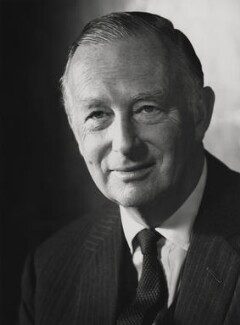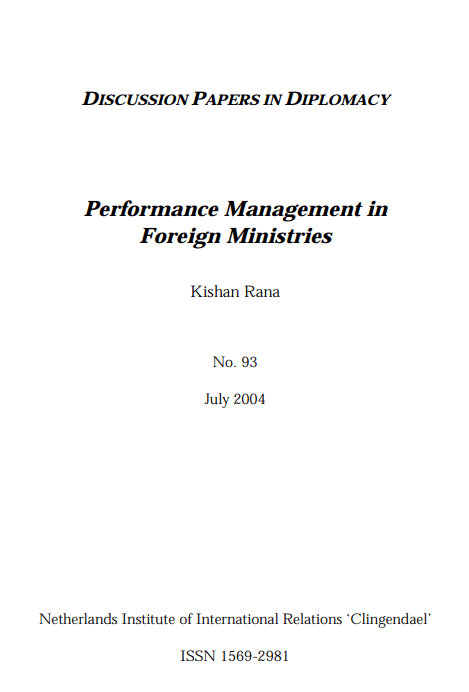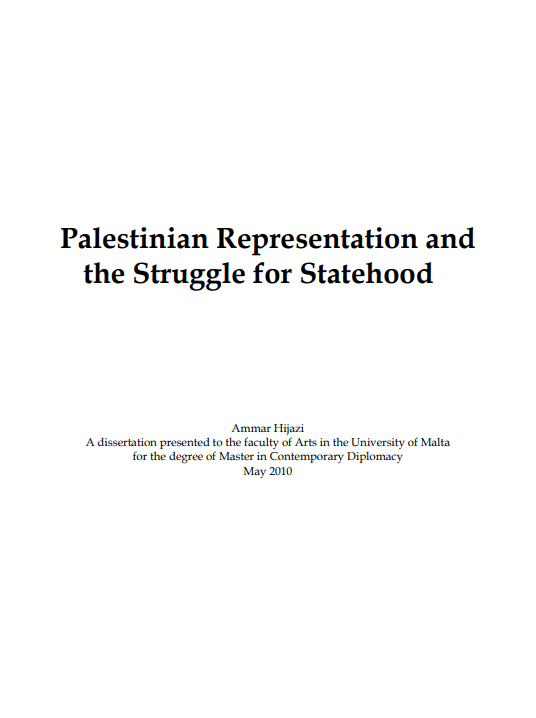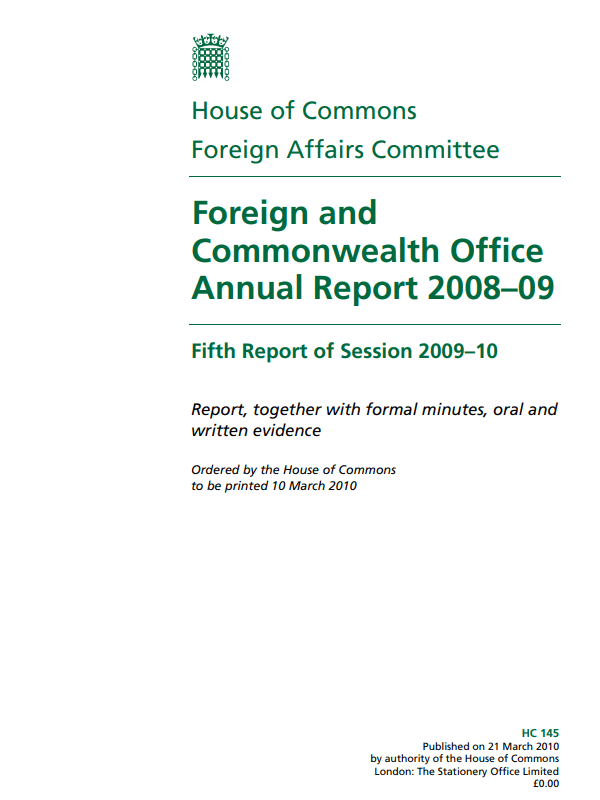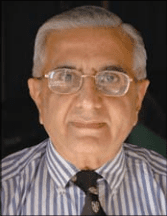Authors: Linda S. Frey | Marsha Frey
A diplomatic analogy: International functionaries and their privileges
1998
Although many have grappled with the question of what privileges and immunities international officials should enjoy, no satisfactory theoretical framework has evolved. How has the issue evolved over time? How extensive is the problem? Why has the response been so ineffectual and the resolution been so intractable? Historians by disposition tend to look forward by going backward. Historically, international privileges and immunities, namely those bestowed on international functionaries, have influenced and become entwined with their diplomatic counterparts.
Developments in diplomatic privileges and immunities have affected the immunities accorded international persons because diplomatic immunity developed as the standard and because “diplomatic” privilege is still used to define the privileges granted to some international officials. Diplomatic privileges and immunities, traditionally limited to diplomats, were gradually extended to the personnel of and representatives to international organizations in four stages.
The first stage, beginning in 1804, witnessed the extension of the status of neutrality and the protection of inviolability to various riparian commissions and of “diplomatic privileges” to some international commissions. In the second stage, beginning in 1899, “diplomatic privileges” were granted to certain judicial tribunals. In the third stage, after World War I, the diplomatic formula was extended to the International Court of Justice, the League, and the International Labor Organization. The fourth stage, after World War II, witnessed the founding of the United Nations and the move toward certain regional or supranational organizations. At that time diplomatic status was still accorded certain officials but “official acts” immunity was applied to the majority.
The growth of international organizations and tribunals after World War I raised certain problems, both theoretical and practical, which led to the abandonment of the “classical” formula of diplomatic privileges and immunities for international functionaries and a shift to functionalism. Still, as the number of organizations, personnel, and representatives increased the pressure to grant the representatives and some of the officials “diplomatic” status was inexorable.
Many residual elements of the classical “diplomatic” privileges linger on in the practice of international organizations like a recalcitrant but not unwelcome guest. Nonetheless, the juridical rationale for such privileges is different. Diplomatic privileges were designed to guarantee the representative freedom from the territorial jurisdiction of the state to which he was sent, but international privileges were designed to guarantee the independence of an organization from the jurisdiction of any state, including that of the official’s home state. The situation of the diplomat and that of the international functionary are different.
First, the diplomat remains subject to the state which sent him while the functionary remains exempt from any territorial power.
Second, the privileges and immunities of officials stem directly from the immunity of the international organization.
Third, certain principles which have been employed to justify diplomatic privilege, namely the sovereignty of the sending state and reciprocity, have not been used to justify international privileges.
Fourth, international privileges rest solely on treaties, whether multilateral or bilateral; conventions; or on international comity. Traditional principles of international law do not oblige a state to grant international officials a special status. International functionaries, unlike diplomats, do not possess special prerogatives unless specifically invested with them.(1)
Theorists have provided various rationales to justify international privileges and immunities; precedent, functional need, the independence or prestige of the organization, and the equality of member states. The first in particular has been vigorously attacked. In 1966 the subcommittee of experts of the Council of Europe echoed the opinion of many when they argued that precedent had played “too important” a part in the past. For them international privileges were justified, mainly but not exclusively on the basis of function.(2)
The prestige of the organization and the stress on the equality of states also played a role. Many jurists relied on the latter to justify the exemption of the organization and its personnel from taxation. They contended that such exemptions permitted the organization to pay higher wages at lower costs and did not allow any one state, including the host, to profit at the expense of the others.
Not surprisingly, the rationales for and extent of diplomatic and international privileges are converging because of the dominance of functionalism in international jurisprudence and because of certain historical similarities between the diplomat and the international official. International privileges in the twentieth century expedited international intercourse just as diplomatic privileges did in the sixteenth and seventeenth centuries.(3) Moreover, so-called “international” diplomacy followed the same evolutionary path as did traditional diplomacy from ad hoc temporary conferences to permanent international organizations just as traditional diplomacy moved from ad hoc representatives to permanent legations.(4)
The decision to accord international officials diplomatic privileges confused the whole issue of immunity even in the very early days of the League of Nations. A report from that time argued that the equation of the League officials with diplomatic agents was “theoretically inexact” as it was.(5)
Regardless of the theoretical foundation or the juridical rationale, existing practice tended to become accepted; the de facto situation crystallized into the de jure.(6) As international organizations increasingly played an integral role in the twentieth-century state system, the line between diplomatic and international functions became blurred. The differentiation between diplomatic and international privileges, so sound in theory, is confused in practice.
This confusion partially stems from the custom of differentiating between ad hoc and permanent representatives to international organizations, by granting each a different status and correspondingly distinct privileges, and by providing various rationales for those concessions. Permanent representatives are often in contemporary jargon “assimilated to,” that is, equated with diplomats and accorded “diplomatic” privileges. Ironically, a previous juridical construction, namely diplomatic privilege, initially adopted by analogy because of its clarity and convenience, obfuscated the issue.
This extension of such privileges to non-diplomats did not go either unremarked or uncontested. In the interwar period many who had witnessed the extension of such immunities worried about the burgeoning numbers of privileged individuals, about the increasing possibilities of abuse, and about the concomitant infringement on national sovereignty. Those concerns linger on. During the debate in the House of Commons on the Diplomatic Privileges (Extension) Act in 1944, one member no doubt exaggerated when he charged the government with proposing to put international officials “outside the normal run of the law, enabling them to enter night clubs, drink after hours and all sorts of things.”
The Minister of State, Mr. Richard Law, protested that no foreign secretary would “create a vast class of privileged persons, who would devote their leisure, and probably their working hours as well, to careening incontinently about the King’s highway massacring the King’s lieges with absolute impunity, having first fortified themselves with unlimited quantities of duty-free wine and spirits, purchased out of tax-free incomes.”(7)
No doubt some international officials were disappointed with this rejoinder. One of the issues raised at that time and still controversial today is exemption from taxation, especially income taxes.(8) The salaries of international officials were and are based on the assumption that they were not liable to income taxes. Tax relief was designed to reduce the financial burden of the organization and the possibility of local interference, to establish uniform salaries (equal pay for equal work), and to ensure that the host state did not benefit at the expense of the other states.
Although general exemptions were intended to benefit the organization, not the individual, some argued that the opposite happened. The creation of a tax-free class, for whatever reasons, could not but arouse resentment and raise questions about equity. In 1991 The Economist estimated that Eurocrats, that is, officials who work for the European community, were paid at least double what locals earned for the same job.(9)
In addition to the question of taxation, host states voiced other concerns. The large number of international officials within the U.S. caused considerable problems ranging from the annoying to the criminal. One of the most widely known, if not the most significant, was illegal parking. From March 1974 to January 1975 New York police issued an average of 360 parking tickets to twenty diplomatic cars and 671 to one alone.(10)
In 1978 U.N. officials in New York city accumulated 250,000 parking tickets few of which were paid.(11)
Other more serious problems, such as brawling and narcotic possession, have triggered a sharp increase in claims of immunity.(12) Even more publicized has been the problem of uncontested defaulted debts to local creditors that have continued to escalate. In Geneva as of February 1995 the total reported indebtedness of both missions and personnel was more than five million Swiss francs. That figure probably undervalued the total indebtedness because some debts were not reported.
Twenty-eight out of the 140 permanent missions there owed debts which ranged from 400 to 1.6 million Swiss francs. In New York City in 1991 it amounted to more than two million dollars, in 1993 to more than four million, in 1994 to more than seven million and in 1996 more than nine million. In 1995 thirty-two missions owed debts which ranged from 200 dollars to more than 1.9 million dollars in one case. A solution has remained elusive. While these problems were serious enough, even more disturbing were criminal violations ranging from disorderly behavior to rape.(13)
The significant increase in the number of internationally protected persons exacerbated the problems. Before World War I one of the largest international organizations, the International Institute of Agriculture, employed one hundred permanent staff in addition to its committee which contained one representative from every member state small by the standards of the 1990s.(14) Since World War II the number of international organizations has grown geometrically as have correspondingly the personnel of and representatives to such bodies.
In 1980 the Council of Europe estimated that there were approximately ninety thousand employed by more than two hundred international organizations.(15) In 1989 the ILO alone employed about twelve thousand in Geneva and more than one thousand elsewhere.(16) By the 1990s the U.N. was clearly the largest employer of the international civil service.(17) By 1983 according to U.N. figures the total number of professional and general service staff was 50,221. This number did not include the 17,152 employed by either the World Bank or UNRWA.(18) Europe also witnessed similar growth in the staff of the European Commission. In Brussels alone in 1966 there were purportedly twenty-three thousand who enjoyed such privileges.(19)
The expansion of new categories of “diplomatic” personnel coupled with the expansion of international organizations raised troubling questions about the numbers immune from local jurisdiction. This growth was partially attributable to the increase in the number of states. In the fall of 1993, the International Standards Organisation which assigned two-letter codes for country names counted 239 with 15 on a reserve list.(20) Many of those states came from the breakup of the European colonial empires in Africa, Asia, and the Americas. The dissolution of the U.S.S.R. added more.
The explosive growth in the number of states paralleled that in the number of international government organizations (IGOs). The periods following World Wars I and II witnessed the greatest proliferation of new IGOs.(21) In the period 1815-1819 there was one IGO, in 1875-1879 nine, in 1900, 30, in 1920-1924, 72, in 1935-1939, 86, in 1945-1949, 123, and in l978-1985, 378. The U.N. and its affiliated and specialized agencies grew tremendously since World War II as did regional organizations and their subsidiaries. In 1978 according to the International Law Commission, which did not compile a comprehensive list, there were eighteen such organizations in Africa; fourteen in the Arab States, Asia, and Oceania; and twelve in Latin America.(22)
In the United States in 1946 there were five International Organizations which fell under Section 7 (b) of the International Organizations Immunities Act of December 29, 1945 and as such were entitled to privileges, exemptions, and immunities: the Food and Agriculture Organization, the International Labor Organization, the Pan American Union, the United Nations, and the United Nations Relief and Rehabilitation Administration.(23) As of 1967 the U.S. recognized forty-one which ranged from the Asian Development Bank to the World Meteorological Organization and which included the Coffee Study Group, the Great Lakes Fishery Commission, Inter-American Tuna Commission, the International Pacific Halibut Commission, the International Wheat Advisory Committee, and the International Hydrographic Bureau. By 1996 the number had risen to seventy-one.(24) Two experts, Werner J. Feld and Robert S. Jordan, estimated that Intergovernmental Organizations (IGOs) may reach 450 by 2000.(25)
The issue of privileges and immunities for such groups came under intense scrutiny by two groups simultaneously, the International Law Commission, which moved to expand them, and the Council of Europe, which moved to contract them.(26) In 1967 the legal rapporteur of the European Committee on Legal Cooperation, Mr. von Merkatz, summed up the report from the Council of Europe and drew attention to some of the problems caused by international privileges and immunities.(27)
The legal rapporteur thought it was neither possible nor desirable to “harmonize” the privileges and immunities of international organizations because the criterion to be employed, functional necessity, meant that such privileges and immunities should by definition vary with the needs of the organization. With these issues in mind, the committee of experts in its draft resolution advocated restricting the privileges and immunities which international organizations and their officials enjoyed.(28) They recommended first, that international organizations, with some possible exceptions, such as the United Nations, “should not enjoy immunity from jurisdiction in auto accidents.” The exclusions of such cases, they contended, would deflect much public criticism.
Second, the high officials of certain organizations should enjoy the same privileges and immunities as diplomatic agents on the basis of function and prestige, but such concessions should be granted only to the Secretary General or his equivalent. This recommendation was considerably more restrictive than current practice.
Third, when the organization refused to waive immunity and a settlement could not be reached, disputes should be submitted to arbitration.
Fourth, the committee underscored that international officials could completely escape taxation in certain circumstances. The concern about creating a tax-free class underscored the larger issue that “too much emphasis has been placed on precedent and prestige.” (29)
The resolution adopted by the Committee of Ministers of the Council of Europe on 26 September 1969 explicitly rejected the idea that international personnel should be accorded privileges and immunities “as a matter of customary international law or international practice.”(30) The committee accepted the advice of its subcommittee that some organizations needed such privileges and immunities to fulfill their purposes, but stressed that organizations were not “entitled to any given privileges and immunities in the absence of any agreement.”
Neither was it necessary nor desirable to establish a scale of privileges and immunities which would be applicable to all international organizations. Member states should study the privileges and immunities required by that organization “without being influenced by those accorded to other organizations of a different character.” In some cases, they advised, no privileges and immunities should be granted; the organization should function exclusively “as a legal person under the national law of the host state.”
States should not bid against each other by offering more privileges and immunities than those stipulated in the general agreement. The report underlined the duty to respect the laws and regulations of the states, the necessity and responsibility of all parties to avoid abuse, the importance of safeguards to protect third parties, and the dictates of state security.(31) The underlying theme was the necessity of basing immunity on functional need. This position differed radically from that taken by the ILC.
The Council of Europe had hoped that the ILC would substantially revise its draft by limiting the number entitled to diplomatic privileges and immunities and by distinguishing between permanent representatives and others.(32) Instead the draft “departed substantially from existing practice and existing agreements,” by expanding the number of privileges and immunities and those entitled to them. Such a constant extension of privileges and immunities would, the Council of Europe feared, trigger in many countries “a sharp reaction against the whole system, which is already far from popular.”(33) Those injunctions were ignored.
In subsequent meetings the committees from the Council of Europe continued to favor restrictions and to question the whole approach of the International Law Commission which was advocating a general “leveling up of privileges and immunities.”(34)
In 1972 at an international conference sponsored by the United Nations General Assembly, a number of delegates expressed some of the same reservations about the draft on international privileges and immunities presented by the International Law Commission. Most of the delegates, stressing the fundamental principle laid down in the U.N. charter that officials of and representatives to international organizations should only enjoy such privileges and immunities as were necessary for the independent exercise of their functions, could find no justification for the high level of privileges and immunities recommended.(35)
Others criticized the draft for neglecting the interests of the host, for basing the privileges and immunities of permanent observer missions “too closely on diplomatic law,” and for using the 1961 Vienna Convention as its basic model and thereby virtually equating permanent missions to international organizations with diplomatic missions.(36) Some even questioned the utility of the exercise given the existing network of treaty provisions.(37) The representative from the United Kingdom quoted with approval the report of the European Committee on Legal Co-operation that opposed the establishment of a general scale of privileges and immunities and suggested that privileges and immunities should be tailored to the needs of the organization.(38) These reservations were not dealt with at that time and came back to haunt the participants later.
Despite considerable and fundamental disagreements with the ILC draft, the U.N. Conference on Representation of States in their Relations with International Organizations was convoked in Vienna from 14 February to 14 March 1975.(39) The failure of the convention indicated the difficulties of grappling with an issue which had become so entangled in so many different agendas.(40) The contentious, often acrimonious, debate over the codification of the privileges of international officials reflected not a world united but one divided where the host states, coincidentally mostly Western, argued for a more functionalist rationale and the developing world, mainly sending states, for much more extensive and often unwarranted privileges.
Historically, diplomatic privileges and immunities, traditionally limited to diplomats, were extended to the personnel of and representatives to international organizations.(41) Although the emphasis increasingly shifted to functionalism and away from “classical” diplomatic privileges and immunities,(42) jurists clung to the analogy of diplomatic privileges and immunities and to the criterion of status. Inevitably problems arose from extending to a new group privileges which evolved out of the needs of the state system of the sixteenth and seventeenth centuries. The application of the diplomatic analogy may have hindered the move to weigh the privileges of international officials on the basis of need. The application of the analogy of diplomatic immunity to these officials will continue to pose certain problems.
Questions about “international privileges” have become part of the debate about the necessity of limiting diplomatic privilege. Those who defend both diplomatic and international immunities find themselves on the defensive in a world increasingly adverse to immunity from local jurisdiction and to privileges for any group. The ever-increasing numbers enjoying such status coupled with the modern rejection of such privileges generated ever more frequent parliamentary and public criticism of both.
In 1949 Georges Perrenoud pointed out that despite the writing of theorists and the posturing of chancelleries about the limitation of diplomatic privileges for international officials, in actuality the privileges granted had not decreased but increased.(43) The problem was greater in the last half of the twentieth century because of the sheer numbers involved. The burgeoning numbers of officials coupled with the general shift toward functionalism lent credence to those who wanted to limit privileges and immunities. As early as 1942 and before the elephantiasis in the number of organizations and personnel, Percy Corbett argued that for officials of international organizations diplomatic privileges were “of doubtful utility.”
Nor, he continued, was the case for diplomatic immunities “above controversy.”(44) It remains true as another, Clive Parry, pointed out in 1947 that too few have considered the disadvantages. For him such privileges were “sometimes superfluous” and “anachronistic.”(45) “The clothing of new institutions in antique forms, be they of words or of conduct, is an absurdity.”(46) Nor was antiquarianism its only flaw. Such an extension would “constitute a wholly false mutation of an institution already under suspicion of having outlived its usefulness.” The “psychology of privilege” which sets a diplomat apart is even more invidious for international officials who are not replaced as quickly as diplomats.”(47) “A subservient international civil service,” he agreed, “would be pernicious,” but “one functioning in a vacuum insulated by privileges and immunities [would be] scarcely less so.”
Those criticisms have only gained force. The public perception is too often that such officials, as was said of those of the International Monetary Fund and World Bank, are “overpaid and overperked.”(48) Popular resentment against privileged status has fueled the movement to limit such privileges. In a 1965 referendum 35% of the Swiss electorate voted against granting immunity to any international group. Subsequently, OPEC (Organization of Petroleum Exporting Countries) was denied immune status and shifted its headquarters to Vienna.(49) Generally, the political and economic competition for location of headquarters helps ensure their privileges.
When four U.N. agencies threatened to move out of Manhattan, the city argued that not only were they important for the city’s international standing, but that they were worth at least two hundred million dollars a year to the city’s economy. The city could have lost 2300 jobs (one third of total number of U.N. employees in the city).(50) Despite the obvious problems and despite certain anomalies and ambiguities, no real alternative has been envisaged. The failure of the attempt to systematize such privileges and the simultaneous attempt to expand such privileges has left a sober legacy. One could ask whether law still serves as a metaphor for the international community or incarnates the community’s vision of itself.(51) As Archibald MacLeish contended “A world ends when its metaphor has died. . . . It perishes when those images though seen no longer mean.” The question is what new vision, if any, will emerge.
NOTES
1. See Council of Europe, AJ, Div 2 (4), Legal Committee of Consultative Assembly, AS Jur (17) 36, 8 March 1966 and Council of Europe, 2202 vol. 1, CCJ (68) 18, p. 5, 10 October 1968, report of the subcommittee.
2. Council of Europe, AJ Div 2 (4), 10 November 1966, report of subcommittee of experts on privileges and immunities of international organizations and persons connected with them, pp. 4 and 5. and Council of Europe, #725, AJNU, p. 8.
3. Council of Europe, 2202 vol. 2, 5 November 1980, committee of experts on privileges and immunities, Prof. Dr. Maximiliano Bernad y Alvarez de Eulate, of the University of Saragossa.
4. Yearbook of the International Law Commission, (1971) 2, part 1: 152.
5. Adatcide Visscher report quoted in Kunz, “Privileges and Immunities of International Organizations,” p. 854, fn. 98. Mineichiro Adatci, a Japanese diplomat, was President of the League of Nations Council in 1929.
6. Elmer Plischke quoted in Michaels, International Privileges and Immunities, p. xi.
7. September 27, 1944. Quoted in Ibid., p. 344.
8. Special thanks to Mr. Kern for pointing out this article. Vettovaglia, “Privileges and Immunities,” pp. 71-83. Here, p. 83. Council of Europe, Strasbourg, 22020, 19 December 1980), CB/De/Concl(80) 327, p. 120, par. 6.
9. The Economist, 6 April, 1991 p. 52.
10. U.S., House of Representatives, 95th Congress, 1st session, Hearings and Markup before the Subcommittee on International Operations of the Committee on International Relations House of Representatives, p. 4.
11. Wilson, “Diplomatic Immunity from Criminal Jurisdiction,” p. l29. Also see U.N.DAG3./3.5.7 19.
12. U.N., DAG13, 2.0.14, Box 44, letter of 9 April 1965.
13. See U.N., DAG 1/1.2.1.303.2 on claims and incidents in 1965 and The Wall Street Journal, 30 September 1987.
14. Smaller agencies included the Universal Postal Union, the Rhine River Commission, and the Union for the Protection of Industrial Property. Hill, “Diplomatic Privileges and Immunities in International Organizations,” p. 44.
15. Council of Europe, 2202, vol. 2, CJ PI (80), 1, 5 November 1980, Committee of experts, p. 8.
16. 1990 Interview with Mrs. Cleopata Doumbia-Henry of the ILO.
17. Feld and Jordan, International Organizations, p. 97.
18. U.N., General Assembly, 38th session, 1983. fifth committee, agenda item 116(b), A/c.5/38/17, p. 3 fn.a.
19. Council of Europe, AJ div 2, 3, subcommittee of experts, 10 November 1966.
20. The Economist, 2 October 1993, p. 2.
21. Feld and Jordan, International Organizations, p. 14 table.
22. Yearbook of International Law Commission, 1978, vol. 2 part 1, pp. 283-284.
23. Preuss, “The International Organizations Immunities Act,” p. 334.
24. A special word of thanks to Sallie D. Claibourn of the Office of Protocol, the U.S. Department of State for providing the 1996 figures.
25. Ibid., p. 7.
26. The special rapporteur, Mr. Abdullah El-Erian of Egypt, submitted his first report in 1963. See U.N. rapporteur survey in Strasbourg, Council of Europe, #725, AJNU and Yearbook of the International Law Commission, 1969 vols.1 and 2 for the drafts and comments.
27. Ibid., AJ, Div 2, Doc 2158, pp. 3 ff.
28. Council of Europe, 2201 vol. 1, CCJ (68), 18, 10 October 1968, p. 18, ff.
29. For comments on this report see ibid., 2202, vol. 2, (CCJ (69), 4, 12 March 1969, p. 5. The Legal Affairs Committee responded to the subcommittee of the CCJ report in 7 February 1969, 2202 vol. 2, AS/ Jur (20) 40, pp. 1 ff.
30. Ibid., 718 AJ, esp. pp. 14 ff.
31. Ibid., p. 27.
32. Ibid., 718 AJ, 26 March 1970, ad hoc committee concerning relations between states and international organizations.
33. On October 5 1970, Sir Vincent Evans issued a statement to the 6th committee of the General Assembly of the United Nations. Ibid., 718 AJ, Strasbourg, GR/REO (71), pp. 4-5.
34. Ibid., 718 AJ, May 9, 1972. p. 26
35. See comments on the draft published in the Yearbook of the International Law Commission 2, part 1 (1971).
36. Ibid., p. 102
37. Fennessy, “The 1975 Vienna Convention,” p. 64. Fennessy was the Australian alternate representative at the U.N. conference.
38. Yearbook of the International Law Commission 1971, 2, part 1 (1971): 42.
39. United Nations Conference on the Representation of States in their Relations with International Organizations. 2 vols. Vol. 2 Documents of the Conference, final document pp. 209-224.
40. Hevener, ed. Diplomacy in a Dangerous World pp. 211-236 for the text. See also Fennessy, “The 1975 Convention,” p. 62.
41. Council of Europe, AJ. Div. 2, document 2158, p. 4, Mr. Merkatz.
42. International Law Commission, 1978 vol. 2, part 1, p. 271
43. See Perrenound, Regimes des privileges, p. 242.
44. Michaels, International Privileges and Immunities, p. 27.
45. Parry, “International Government and Diplomatic Privilege,” p. 112.
46. Ibid., p. 119.
47. Ibid., p. 120.
48. Council of Europe, AJ div. 2, vol. 1, April 1978.
49. Gormley, “The Right of Officials,” p. 448, fn. 14.
50. The Economist, June 6, 1992, p. 26.



